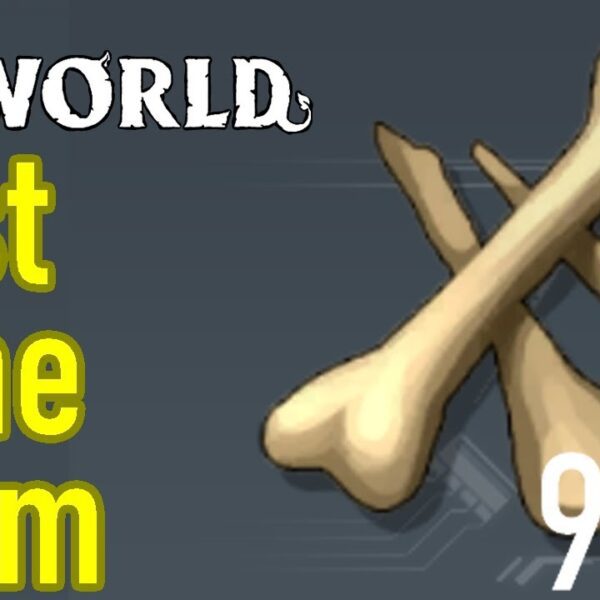Feeling lost in a sea of “bussin'” beats and “sheesh”-worthy memes? You’re not alone. Gen Z communication can be a whole new language, evolving faster than ever in 2024. But fear not, fellow internet traveler! This guide will be your key to deciphering the latest slang terms and using them like a pro (or at least understanding what your younger sibling is texting).
We’ll break down the hottest words and phrases, explain their origins and meanings, and show you exactly where (and where not) to use them. So grab your virtual skateboard, hop on the hype train, and get ready to level up your Gen Z lingo game!

TOP 50 Gen Z slang of 2024
- Fam: Fam is a term used to refer to one’s close friends or even acquaintances who are like family.
Example: “Heading out with the fam tonight!”
Explanation: Fam is an affectionate way of addressing a group of people who are considered close or familiar, akin to family.
2. Glow up: This term refers to a significant positive transformation, often in terms of appearance or personal growth.
Example: “Wow, she’s had such a glow up since high school!”
Explanation: Glow up describes a positive change in someone’s life or appearance, usually over a period of time, leading to an improvement in their overall demeanor or confidence.
3. CEO: CEO stands for “Chief Executive Officer” but in Gen Z slang, it’s used to describe someone who’s incredibly skilled or proficient at something.
Example: “She’s the CEO of winged eyeliner!”
Explanation: CEO is used humorously to signify mastery or expertise in a particular skill or activity, regardless of its formal association with corporate leadership.
4. Cancel Culture: This term refers to the widespread trend of boycotting or ostracizing individuals, companies, or public figures who have expressed controversial opinions or engaged in offensive behavior.
Example: “That celebrity got canceled after making some insensitive comments.”
Explanation: Cancel culture involves calling out and disavowing individuals or entities for behavior deemed unacceptable by the public, often leading to social consequences such as loss of support or endorsements.
5. Stan: To “stan” someone means to be an enthusiastic and supportive fan of theirs, often to an obsessive degree.
Example: “I stan Beyoncé so hard!”
Explanation: Stan is derived from the Eminem song “Stan” and signifies an intense level of admiration or devotion towards a person, group, or entity.
6. E-boy/E-girl: These terms refer to individuals who embrace a distinct style or aesthetic characterized by elements of internet culture, often incorporating emo or goth influences.
Example: “That TikTok star is totally an e-girl with her edgy makeup and fashion.”
Explanation: E-boy and E-girl describe individuals who express themselves online through their appearance, fashion choices, and interests, often embracing alternative or subcultural aesthetics.
7. W: In Gen Z slang, “W” stands for “win” and is used to celebrate victories or accomplishments.
Example: “Just aced my exam, big W!”
Explanation: W is shorthand for “win” and is used informally to acknowledge achievements or positive outcomes in various situations.
8. Dank: When something is described as “dank,” it means it’s excellent, high-quality, or impressive.
Example: “That meme is so dank, I can’t stop laughing!”
Explanation: Dank originally referred to something moist or damp but has evolved in internet culture to denote something cool, amusing, or of exceptional quality.
9. Ghosting: Ghosting refers to abruptly cutting off communication with someone, especially in romantic or social contexts, without explanation or warning.
Example: “I can’t believe he ghosted me after our date.”
Explanation: Ghosting involves ignoring or avoiding someone entirely, typically in the context of modern dating or interpersonal relationships, leaving the other person feeling confused or rejected.
10. Salty: When someone is described as “salty,” it means they are bitter, resentful, or upset, often due to jealousy or disappointment.
Example: “She’s so salty about not getting invited to the party.”
Explanation: Salty describes someone who is feeling sour or resentful, usually in response to perceived unfairness or disappointment, and can manifest as passive-aggressive behavior or comments.
- Big Yikes: This expression is used to convey a strong sense of embarrassment, discomfort, or shock in response to a situation or statement.
- Example: “I accidentally called my teacher ‘mom’ today… bigyikes.”
Explanation: Big yikes is an intensified version of the word “yikes” and is employed when the level of discomfort or awkwardness is particularly noteworthy or cringeworthy.
- Boujee: Boujee refers to something or someone that is luxurious, extravagant, or high-class.
- Example: “She’s living a boujee lifestyle with all those designer clothes.”
Explanation: Boujee, derived from “bourgeoisie,” describes a lifestyle or aesthetic associated with wealth, sophistication, and indulgence, often characterized by opulent tastes or material possessions.
- Finna: A contraction of “fixing to,” finna is used to express intention or readiness to do something.
- Example: “I’m finna head out to the store, need anything?”
Explanation: Finna is a colloquial term originating from African American Vernacular English (AAVE) and is commonly used to indicate a forthcoming action or plan.
- Cap: In slang, “cap” means to lie or exaggerate. When someone says “no cap,” it means they’re being genuine or truthful.
- Example: “He said he’s friends with Drake, but I think he’s capping.”
Explanation: Cap originated from the term “capping,” which means bragging or boasting falsely. “No cap” is used to emphasize the sincerity or truthfulness of a statement.
- High-key: High-key is used to indicate when something is being expressed or emphasized openly and directly.
- Example: “I high-key love pizza, it’s my favorite food.”
Explanation: High-key contrasts with “low-key” and signifies a strong or explicit expression of a feeling, opinion, or preference, often used for emphasis or clarity.
- Cheugy: Cheugy describes something or someone as unfashionable, outdated, or trying too hard to be trendy but failing.
- Example: “Her style is so cheugy with all those outdated trends.”
Explanation: Cheugy emerged as a term within Gen Z slang to critique trends or aesthetics considered uncool or passé, often associated with millennial culture or mainstream sensibilities.
- Simp: A simp is someone who goes above and beyond for someone they’re romantically interested in, often at their own expense or detriment.
- Example: “He’s always buying her gifts and doing her favors, he’s such a simp.”
Explanation: Simp originally referred to “suckers idolizing mediocre pussy” but has since evolved to describe anyone excessively catering to someone else’s desires or needs, often to gain affection or attention.
- Vibe: “Vibe” refers to the atmosphere, mood, or feeling of a particular situation, place, or interaction.
- Example: “This party has such a chill vibe.”
Explanation: Vibe encompasses the overall ambiance or energy of a given setting or circumstance, often used to describe the collective emotional or aesthetic experience.
- Flex: To “flex” means to show off or boast about one’s achievements, possessions, or abilities.
- Example: “He’s always flexing his new sneakers on Instagram.”
Explanation: Flexing involves publicly displaying or highlighting one’s successes, assets, or talents, typically to garner admiration or validation from others.
- Savage: “Savage” describes someone who is bold, fearless, or brutally honest in their actions or words.
- Example: “Did you see her clap back at the haters? She’s so savage.”
Explanation: Savage refers to a person who exhibits a no-nonsense attitude or a willingness to confront challenges or adversaries with assertiveness and wit.
- Tea: In slang, “tea” refers to gossip, juicy information, or the truth about a situation.
- Example: “Spill the tea, what’s really going on with them?”
Explanation: Tea originated from the phrase “spill the tea,” which means to share secrets or reveal interesting information, particularly about social or celebrity matters.
- Noob: “Noob” is a slang term used to describe someone who is inexperienced, clueless, or lacking in skill or knowledge, especially in gaming or online communities.
- Example: “He keeps losing because he’s such a noob at this game.”
Explanation: Noob is derived from “newbie” or “newcomer” and is often used playfully or disparagingly to mock someone’s lack of proficiency or understanding in a particular activity or domain.
- Lit: “Lit” is used to describe something that is exciting, fun, or highly enjoyable.
- Example: “The party last night was so lit, everyone was dancing.”
Explanation: Lit originated from African American Vernacular English (AAVE) and initially referred to being intoxicated or under the influence of drugs. It later evolved to describe any situation or event characterized by energy, enthusiasm, or exhilaration.
- Clout: “Clout” refers to influence, power, or credibility, especially in online or social media contexts.
- Example: “She’s got major clout on TikTok with millions of followers.”
Explanation: Clout denotes a person’s ability to command attention, attract followers, or shape opinions, often associated with popularity, authority, or status in digital or virtual communities.
- Ship: “Ship” is short for “relationship” and is used to express support for or desire for two people to be in a romantic partnership.
- Example: “I totally ship Harry and Hermione from Harry Potter.”
Explanation: Ship originated from the term “relationship” and is commonly used in fan communities to express enthusiasm or preference for fictional or real-life pairings.
- Bae: “Bae” is an affectionate term for one’s significant other or romantic partner.
- Example: “Date night with bae tonight!”
Explanation: Bae originated as an abbreviation for “before anyone else” but has evolved to become a term of endearment for a loved one or romantic interest.
- Extra: “Extra” describes someone or something that is over-the-top, dramatic, or excessively attention-seeking.
- Example: “She’s so extra with all her extravagant gestures.”
Explanation: Extra is used to denote behavior or characteristics that exceed normal or expected levels, often with a humorous or critical undertone.
- FOMO: “FOMO” stands for “Fear of Missing Out” and refers to the anxiety or apprehension one feels when they believe others are having enjoyable experiences without them.
- Example: “I hate staying in on weekends, I always get FOMO.”
Explanation: FOMO describes the sense of unease or dissatisfaction that arises from the fear of being excluded or left out of social events or activities perceived as enjoyable or significant.
- YOLO: “YOLO” is an acronym for “You Only Live Once” and is used to justify taking risks or seizing opportunities in life.
- Example: “I booked a spontaneous trip to Europe because, you know, YOLO.”
Explanation: YOLO emphasizes the importance of living life to the fullest and embracing experiences without fear of consequences or regrets, popularized by its use in social media and youth culture.
- Sksksk: “Sksksk” is an expression of excitement, laughter, or amusement often used in online conversations or text messages.
- Example: “That video was hilarious, sksksk!”
Explanation: Sksksk originated as a form of onomatopoeia mimicking the sound of laughter or exuberant chatter, commonly associated with humor, silliness, or camaraderie among young people.
- I’m Dead: “I’m dead” is used to express extreme amusement, shock, or disbelief in response to something funny or surprising.
- Example: “Did you see that meme? I’m dead!”
Explanation: “I’m dead” is an exaggerated expression indicating that something is so hilarious or shocking that it figuratively causes the speaker to collapse from laughter or astonishment.
- Slide into DMs: “Slide into DMs” refers to initiating a private conversation with someone on social media, typically with romantic or flirtatious intentions.
- Example: “I’m thinking about sliding into his DMs and asking him out.”
Explanation: The phrase “slide into DMs” suggests the act of discreetly entering someone’s direct messages (DMs) on platforms like Instagram or Twitter, often used as a casual way to express interest or start a conversation.
- TikTok: “TikTok” is a popular video-sharing app where users create and share short-form videos showcasing various talents, dances, challenges, and comedic skits.
- Example: “Have you seen that hilarious TikTok of the dog singing?”
Explanation: TikTok has become a cultural phenomenon, particularly among younger generations, offering a platform for creativity, entertainment, and social interaction through its diverse array of user-generated content.
- Finsta: “Finsta,” short for “fake Instagram,” refers to a secondary or alternative Instagram account created by users to share more private, authentic, or humorous content with a select group of followers.
- Example: “I only post silly selfies and memes on my Finsta.”
Explanation: Finstas allow users to curate a more candid or personal online presence away from the polished and curated images typically associated with their main Instagram accounts, fostering a sense of intimacy or authenticity among friends.
- Woke: “Woke” describes being socially and politically aware, particularly regarding issues of systemic injustice, discrimination, and inequality.
- Example: “She’s so woke, always advocating for social justice and equality.”
Explanation: Woke originated in African American Vernacular English (AAVE) as a term for being awake to the realities of oppression and injustice, but it has since gained broader usage to encompass awareness and activism on various social issues.
- GOAT: “GOAT” stands for “Greatest of All Time” and is used to describe someone or something as the best in their field or category.
- Example: “Michael Jordan is the GOAT of basketball.”
Explanation: GOAT is a term of praise or admiration reserved for individuals, athletes, or cultural phenomena deemed unparalleled or unmatched in their excellence, influence, or impact.
- Sus: “Sus” is short for “suspect” and is used to describe someone or something as suspicious or untrustworthy.
- Example: “His alibi seems sus, I don’t think he’s telling the truth.”
Explanation: Sus is commonly used in casual conversation or online interactions to express skepticism or doubt regarding the motives, behavior, or authenticity of a person or situation.
- Snatched: “Snatched” is used to describe someone who looks exceptionally good, stylish, or put-together, often in reference to their outfit or appearance.
- Example: “Her outfit is snatched, she’s serving looks today.”
Explanation: Snatched originated within LGBTQ+ and drag culture to describe a flawless or striking appearance, typically achieved through meticulous styling, grooming, or fashion choices.
- JOMO: “JOMO” stands for “Joy of Missing Out” and refers to the satisfaction or contentment derived from staying in and avoiding social activities or obligations.
- Example: “I skipped the party and had a cozy night in with a book. That’s my JOMO.”
Explanation: JOMO contrasts with FOMO and celebrates the freedom and relaxation that comes from prioritizing personal well-being and solitude over social pressures or expectations.
- Bet: “Bet” is a slang term used to express agreement, affirmation, or confirmation.
- Example: “Want to grab pizza tonight?” “Bet, I’m down.”
Explanation: Bet is an informal way of acknowledging or accepting a proposition, promise, or challenge, often used in casual conversation or as a response to a statement or invitation.
- Slay: “Slay” is used to describe someone who excels or performs exceptionally well in a particular context, such as fashion, talent, or accomplishments.
- Example: “She absolutely slayed that dance performance!”
Explanation: Slay originated in LGBTQ+ and drag culture as a term for performing flawlessly, often in the context of a drag queen’s captivating stage presence. It has since evolved into mainstream slang to praise individuals for their confidence, skill, or success.
- Gassed: “Gassed” means to be excited, hyped up, or exhilarated about something.
- Example: “I’m so gassed for the concert tonight, it’s going to be epic!”
Explanation: Gassed originated from British slang, where it referred to inflating or filling something with gas. In contemporary usage, it conveys a sense of enthusiasm or energy, often in anticipation of an event or activity.
- Betty: “Betty” is slang for an attractive person, typically a woman.
- Example: “Check out that new girl, she’s a total Betty.”
Explanation: Betty originated in American slang during the mid-20th century and was popularized by the 1990s film “Clueless.” It is often used affectionately to compliment someone’s physical appearance or appeal.
- Low-key: “Low-key” is used to describe something that is done discreetly, subtly, or without drawing attention.
- Example: “I’m low-key obsessed with that new song, but I don’t want to admit it.”
Explanation: Low-key contrasts with high-key and implies a preference for modesty or understatement, particularly in expressing opinions, interests, or emotions.
- Savage Love: “Savage Love” refers to the hit song by Jawsh 685 and Jason Derulo, known for its catchy beat and viral TikTok dance challenge.
- Example: “Have you heard ‘Savage Love’ yet? It’s been stuck in my head all day.”
Explanation: Savage Love gained widespread popularity through social media platforms like TikTok, where users created dance routines and lip-sync videos set to the song’s infectious melody.
- Flexin’: “Flexin'” means showing off or boasting about one’s achievements, possessions, or status.
- Example: “He’s always flexin’ his designer clothes on Instagram.”
Explanation: Flexin’ derives from the term “flex,” which originally referred to flaunting one’s muscles or physical strength. In contemporary slang, it extends to displaying any form of success or superiority.
- Thirsty: “Thirsty” describes someone who is overly eager, desperate, or aggressive in seeking attention, validation, or romantic interest.
- Example: “He’s been commenting on all her photos, he’s so thirsty.”
Explanation: Thirsty originated as a metaphor for craving water in response to dehydration, but it has since been adapted to signify a hunger for approval or admiration, especially in online interactions.
- TBT: “TBT” stands for “Throwback Thursday,” a social media trend where users share nostalgic photos or memories from the past on Thursdays.
- Example: “Here’s a TBT to our trip to the beach last summer.”
Explanation: TBT encourages people to reminisce and reflect on fond memories by sharing old photos or anecdotes, fostering a sense of nostalgia and connection within online communities.
- Lit AF: “Lit AF” is an intensified version of “lit,” indicating something that is extremely exciting, enjoyable, or cool.
- Example: “That party last night was lit AF, I had the best time!”
Explanation: Lit AF combines “lit,” slang for something exciting or enjoyable, with “AF,” an acronym for “as f*ck,” to emphasize the intensity or greatness of a situation or experience.
- Bop: “Bop” refers to a catchy song or track that is enjoyable to listen to and may inspire dancing or movement.
- Example: “Have you heard the new song by Ariana Grande? It’s such a bop!”
Explanation: Bop originated as a term for a lively or upbeat piece of music that encourages rhythmic movement or dancing. It is often used informally to praise a song’s catchy melody or infectious rhythm.
Mastering the Lingo: Your Gen Z Takeaway
So, there you have it! With this cheat sheet of 2024’s hottest Gen Z slang, you’re well on your way to navigating the digital landscape with confidence. Remember, language is fluid, and these terms may evolve or fade over time. But by understanding the current trends and using them thoughtfully, you can bridge the communication gap and connect with Gen Z on their terms.
Who knows, you might even find yourself dropping a casual “no cap” or two! But before youYeet yourself into a conversation, remember to consider the context and audience. Stay cool, stay curious, and keep those internet slang skills sharp!





